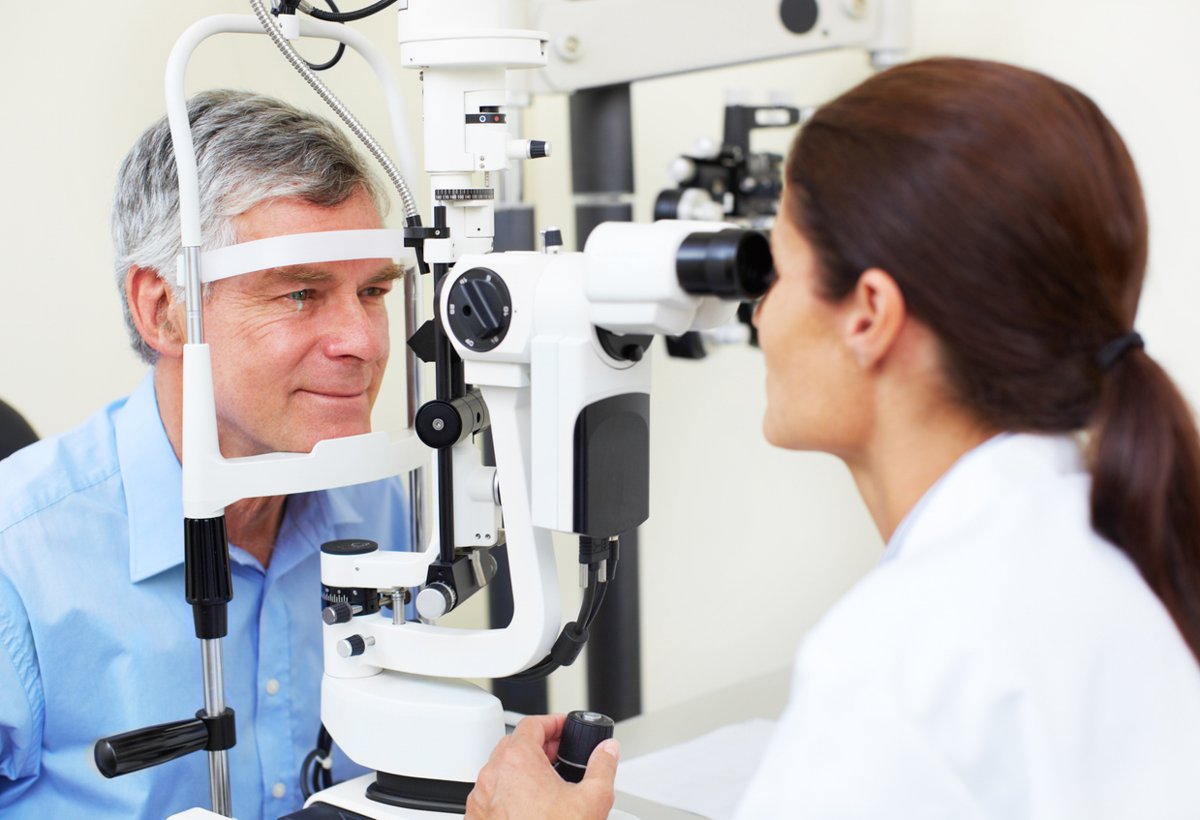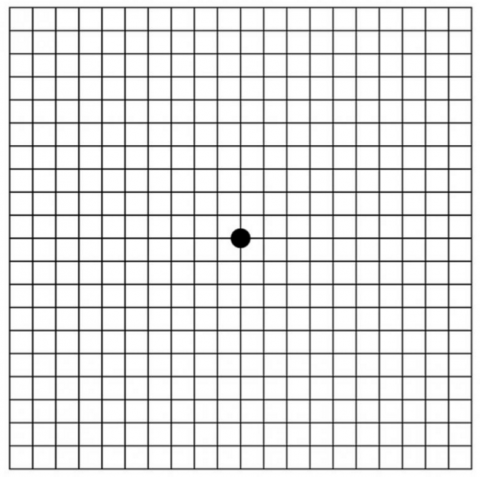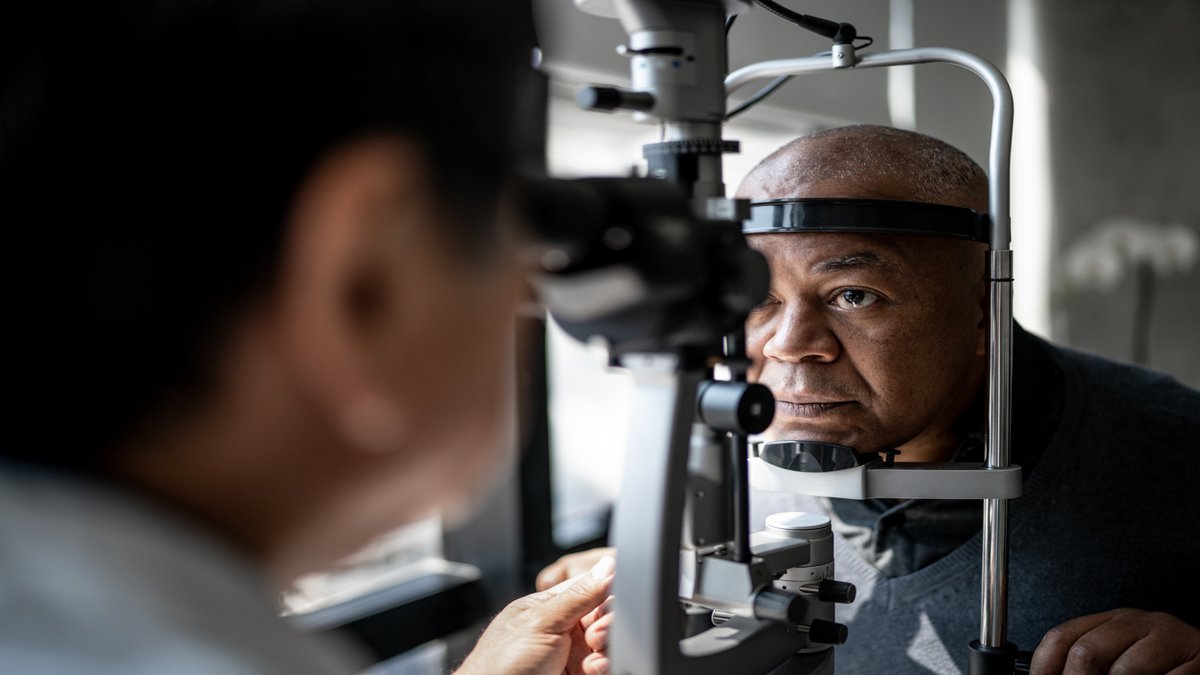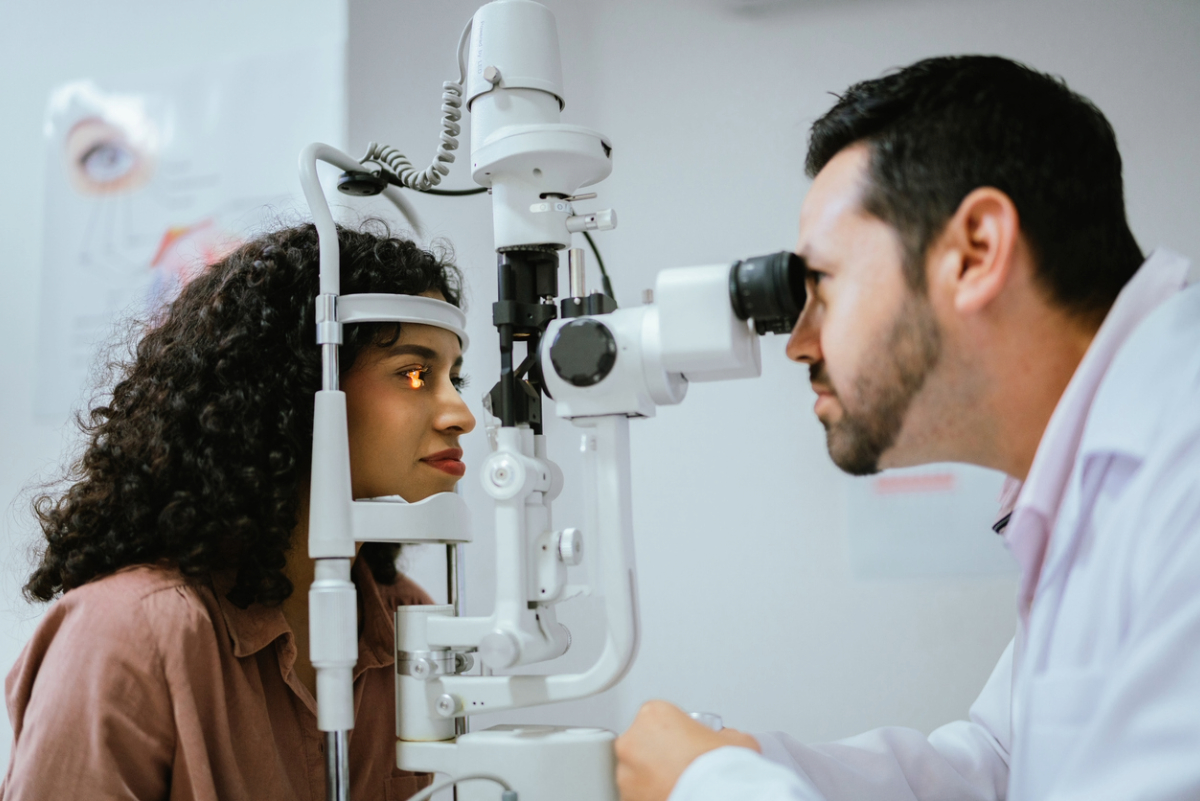Macular Degeneration Diagnosis & Testing
During the early stages of age-related macular degeneration (AMD), you may not have symptoms, particularly if only one eye is affected. AMD also causes no pain that might suggest that something is wrong, but an eye doctor may be able to detect early signs of the disease before symptoms appear. That’s why it is critical to have regular eye examinations to detect these signs as soon as possible, especially if you have a family history of AMD, are 50 or older, or have any of the other risk factors for developing macular degeneration.

Types of Diagnostic Testing
If you notice a change in your central vision, you should have your eyes checked by an ophthalmologist. This type of doctor specializes in the medical and surgical care of the eyes and visual system and the prevention of eye disease and injury. To help diagnose macular degeneration, an ophthalmologist or optometrist will perform a comprehensive eye exam that may include the following tests:
What to Expect After a Diagnosis
If you or a loved one has just been diagnosed with macular degeneration or thinks they might have this disease, it can be overwhelming. Understanding what comes next can help.
Vitamin Regimens
If you have early macular degeneration and a minimal number and size of drusen, your doctor may advise that you take certain antioxidant vitamins. The Age-Related Eye Disease Study 2 (AREDS2) clinical trial showed that a mixture of lutein, vitamin C, vitamin E, zinc, and copper could reduce the risk of progression to advanced macular degeneration by 25 percent. While many types of eye vitamins are on the market, only those that use the “AREDS2” formula have been proven effective.
Lifestyle Changes
Lifestyle modifications can also reduce the risk of AMD progression. If you have any form of macular degeneration, you will be advised to eat lots of fruits and vegetables and fatty fish (salmon, tuna, sardines, or mackerel twice a week). Smoking is a major risk factor. Evidence also suggests that excessive simple sugars and red meat are also risk factors. Wear sunglasses to protect your eyes when out in bright light.
Macular Degeneration: Get the Facts
Age-related macular degeneration is a leading cause of vision loss in Americans aged 60 and older. Guest speaker Gayatri S. Reilly, MD, answers questions and shares all the facts you need to know about wet and dry macular degeneration.
Confused by Medical Lingo?
Were you or a loved one recently diagnosed with macular degeneration but feel lost when trying to decipher the diagnosis given by your physician? Use our disease glossary to learn more about the terms you’ve been hearing.
There is Hope
Macular Degeneration Research, a BrightFocus Foundation program, is accelerating groundbreaking research into the root causes of this eye disease and supporting pioneering prevention strategies and treatments to end macular degeneration in our lifetime.
Search for a Macular Degeneration Clinical Trial
Clinical trials are crucial to advancing the most effective medical approaches. Today’s studies will lead to new standards of care in the future.

Resources
Recent Resources & Information

Downloadable Resource
Amsler Grid Eye Test
Download a free Amsler grid, an at-home eye test that can help detect early signs of retinal disease such as age-related macular degeneration (AMD).

Story
Living With Macular Degeneration: A Personal Journey
Read about the personal journey of Ann M. who was diagnosed with age-related dry macular degeneration 15 years ago.

Downloadable Resource
Geographic Atrophy Fact Sheet
Learn about geographic atrophy, an advanced and severe form of dry age-related macular degeneration.

Expert Information
Dry vs. Wet Age-Related Macular Degeneration: What’s the Difference?
An ophthalmologist explains the differences between dry and wet age-related macular degeneration.

Downloadable Resource
The Top Five Questions to Ask Your Eye Doctor
Preparing ahead of time can help you best manage your vision health. Here are some questions you can take along when you visit the eye doctor.

Expert Information
Macular Degeneration: Your First Appointment
Make the most of your appointment time by preparing with these questions to ask, items to bring, and questions your doctor may ask you.



